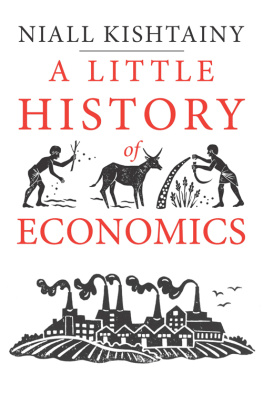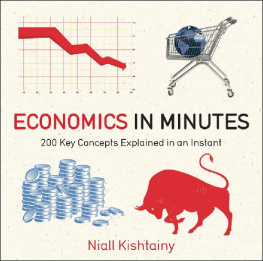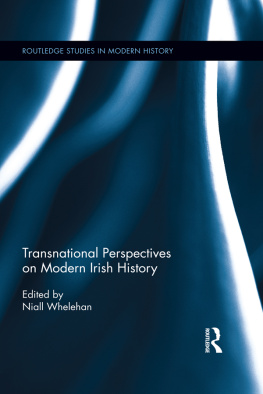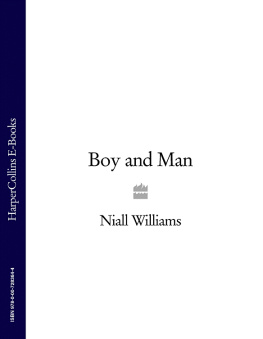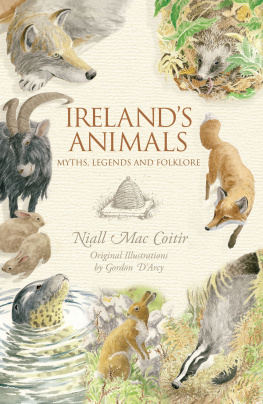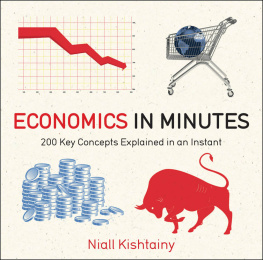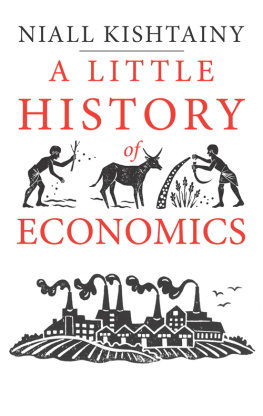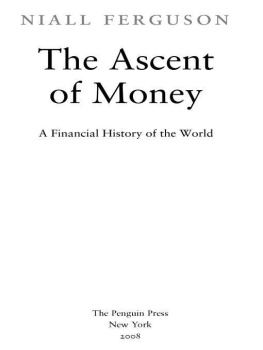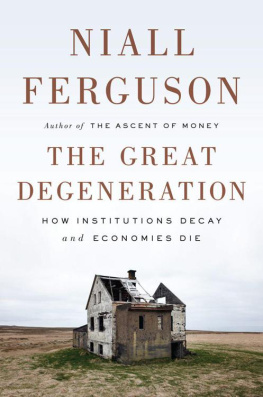Niall Kishtainy - A Little History of Economics
Here you can read online Niall Kishtainy - A Little History of Economics full text of the book (entire story) in english for free. Download pdf and epub, get meaning, cover and reviews about this ebook. year: 0, publisher: Yale University Press, genre: Politics. Description of the work, (preface) as well as reviews are available. Best literature library LitArk.com created for fans of good reading and offers a wide selection of genres:
Romance novel
Science fiction
Adventure
Detective
Science
History
Home and family
Prose
Art
Politics
Computer
Non-fiction
Religion
Business
Children
Humor
Choose a favorite category and find really read worthwhile books. Enjoy immersion in the world of imagination, feel the emotions of the characters or learn something new for yourself, make an fascinating discovery.
- Book:A Little History of Economics
- Author:
- Publisher:Yale University Press
- Genre:
- Year:0
- Rating:3 / 5
- Favourites:Add to favourites
- Your mark:
- 60
- 1
- 2
- 3
- 4
- 5
A Little History of Economics: summary, description and annotation
We offer to read an annotation, description, summary or preface (depends on what the author of the book "A Little History of Economics" wrote himself). If you haven't found the necessary information about the book — write in the comments, we will try to find it.
A Little History of Economics — read online for free the complete book (whole text) full work
Below is the text of the book, divided by pages. System saving the place of the last page read, allows you to conveniently read the book "A Little History of Economics" online for free, without having to search again every time where you left off. Put a bookmark, and you can go to the page where you finished reading at any time.
Font size:
Interval:
Bookmark:
A LITTLE HISTORY OF ECONOMICS

Copyright 2017 Niall Kishtainy
All rights reserved. This book may not be reproduced in whole or in part, in any form (beyond that copying permitted by Sections 107 and 108 of the U.S. Copyright Law and except by reviewers for the public press) without written permission from the publishers.
For information about this and other Yale University Press publications, please contact:
U.S. Office:
Europe Office:
Typeset in Minion Pro by IDSUK (DataConnection) Ltd
Printed in Great Britain by TJ International Ltd, Padstow, Cornwall
Library of Congress Cataloging-in-Publication Data
Names: Kishtainy, Niall, author.
Title: A little history of economics / Niall Kishtainy.
Description: First Edition. | New Haven : Yale University Press, 2017. | Includes bibliographical references and index.
Identifiers: LCCN 2016042806 | ISBN 9780300206364 (c1 : alk. paper)
Subjects: LCSH: Economics. | Economic history. | Economists.
Classification: LCC HB71 .K527 2017 | DDC 330.09dc23
LC record available at https://lccn.loc.gov/2016042806
A catalogue record for this book is available from the British Library.
10 9 8 7 6 5 4 3 2 1
Contents
CHAPTER 1
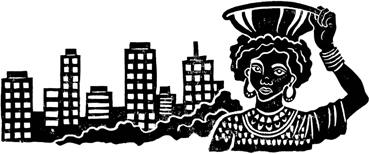
Cool Heads and Warm Hearts
T he fact that youre holding this book in your hands puts you in a special position. For a start, you (or whoever gave you this book) had the money to buy it. If you were from a poor country, your family would probably be scraping by on a few dollars a day. Most of your money would go on food and there wouldnt be any left to buy a book. Even if you did get hold of a copy, chances are that it would be useless to you because you wouldnt be able to read it. In Burkina Faso, a poor country in West Africa, less then half of young people can read; only a third of girls can. Instead of learning algebra or languages, a 12-year-old girl there might have spent the day heaving buckets of water to her familys hut. You might not think of you and your family as being especially rich, but to many people around the world spending money on a book and being able to read it would seem as likely as a trip to the moon.
People who burn with curiosity and perhaps with anger about this vast difference often turn to economics. Economics is the study of how societies use their resources the land, coal, people and machines that are involved in making useful goods like bread and shoes. Economics shows why its quite wrong to say that people in Burkina Faso are poor because theyre lazy, as some do. Many of them work very hard, but they were born into an economy which as a whole isnt very good at producing things. Why does Britain have the buildings, books and teachers needed to educate its children when Burkina Faso doesnt? This is an incredibly difficult question and no one has quite got to the bottom of it. Economics tries to.
Heres a stronger reason to be fascinated by economics, and perhaps to come up with your own ideas about it. Economics is a matter of life and death. A baby born today in a rich country has a tiny chance of dying before the age of five. The death of a young child is a rare and shocking event when it happens. In the poorest countries of the world, though, more than 10 per cent of children never make it to the age of five because of a lack of food and medicine. Teenagers in those countries could count themselves lucky to have survived.
The word economics might sound a bit dry, and make you think of a load of boring statistics. But all its really about is how to help people to survive and to be healthy and educated. Its about how people get what they need to live full, happy lives and why some people dont. If we can solve basic economic questions, maybe we can help everyone to live better lives.
Economists have a particular way of thinking about resources that is, the bricks to build a school, the drugs to cure diseases and the books people want. They talk about these things being scarce. The British economist Lionel Robbins once defined economics as the study of scarcity. Rare things like diamonds and white peacocks are scarce, but to economists pens and books are scarce too, even though you can easily find them at home or in your local shop. By scarcity they mean that theres a limited amount, and peoples desires are potentially unlimited. If we could, we might go on buying new pens and books forever but we cant have it all because everything has a cost. This means that we have to make choices.
Lets think a bit more about the idea of cost. Cost isnt just pounds or dollars, though theyre important. Imagine a student choosing which subject to study next year. The options are history or geography, but not both. The student chooses history. Whats the cost of that choice? Its what you give up: the chance to learn about deserts, glaciers and capital cities. What about the cost of a new hospital? You could add up the prices of the bricks and steel that went into it. But if we think in terms of what we give up, then the cost is the train station that we could have built instead. Economists call this opportunity cost, and its easy to overlook. Scarcity and opportunity cost show a basic economic principle: there are always choices to be made, between hospitals and train stations, shopping malls and football pitches.
Economics, then, is about how we use scarce resources to satisfy needs. But its more than this. How do the choices facing people change? Those in poor societies face stark ones: a meal for the children or antibiotics for a sick grandmother. In rich countries like America or Sweden they rarely do. They might have to choose between a new watch and the latest iPad. Rich countries face serious economic problems sometimes firms go bust, workers lose their jobs and struggle to buy clothes for their children but theyre less often matters of life and death. A central question of economics, then, is how societies overcome the worst effects of scarcity and why some dont do it nearly as rapidly. An attempt at a good answer needs more than a mastery of opportunity cost being good at working out whether we should have a new hospital or football pitch or whether to buy an iPad or a watch. Your answer would need to draw on all sorts of theories of economics, and a deep knowledge of how different economies actually work in the real world. Meeting historys economic thinkers in this book is a great starting point; their ideas show how wonderfully varied economists attempts have been.
Economists study the economy, obviously. The economy is where resources are used up, new things are made and its decided who gets what. For example, a manufacturer buys cloth and hires workers to produce T-shirts. Consumers you and I go to the shops, and if we have money in our pockets can buy goods like T-shirts (we consume them). We also consume services, things that arent physical objects haircuts, for example. Most consumers are also workers because they earn money from a job. Firms, workers and consumers are the key elements of an economy. But banks and stock markets the financial system also influence how resources are used. Banks lend money to firms they finance them. When one lends money to a clothes manufacturer to build a new factory, the loan allows the manufacturer to buy cement, which ends up as part of the factory rather than in a new bridge. To raise money, companies sometimes sell shares (or stock) in the stock market. When you own a share in Toshiba you own a tiny bit of the company and if Toshiba does well the price of its shares rise and you get richer. Governments are part of the economy, too. They affect how resources are used when they spend money on a new motorway or power station.
Next pageFont size:
Interval:
Bookmark:
Similar books «A Little History of Economics»
Look at similar books to A Little History of Economics. We have selected literature similar in name and meaning in the hope of providing readers with more options to find new, interesting, not yet read works.
Discussion, reviews of the book A Little History of Economics and just readers' own opinions. Leave your comments, write what you think about the work, its meaning or the main characters. Specify what exactly you liked and what you didn't like, and why you think so.

